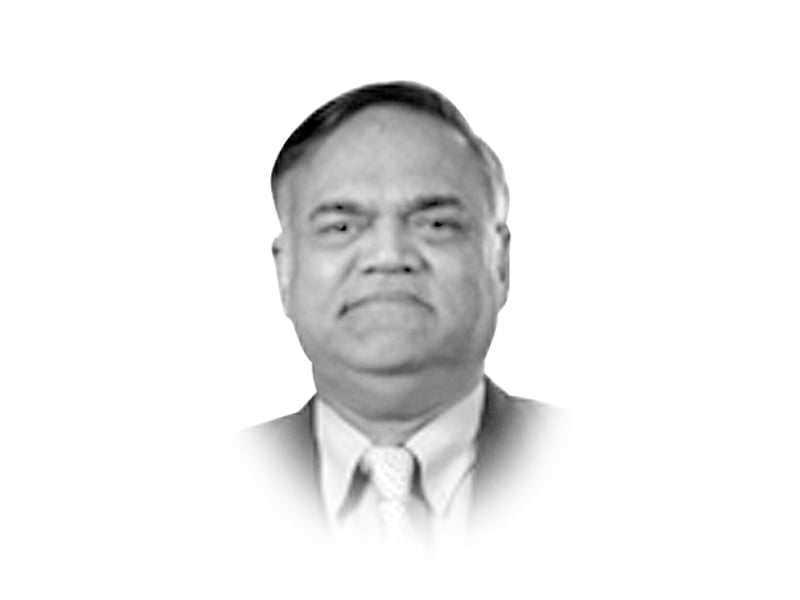
An unprecedented opportunity became available to the ECP through the first part of the Report of the Media Commission appointed by the Supreme Court on January 15. The two-member bench of the Court comprises Justice Jawad S Khawaja and Justice Arif Hussain Khilji. The Commission comprises Justice (retd) Nasir Aslam Zahid as chairman and this writer as member. With the approval of the Court, the Commission invited former federal secretary, Salim Gul Shaikh to serve as secretary. All three persons serve on a voluntary basis.
While the Commission is asked to provide its report on nine terms of reference (ToRs) (published in leading newspapers on February 17), one of these ToRs is particularly relevant to the upcoming polls. This ToR states: “To enquire into allegations of media-related corruption and suggest steps to ensure impartial and independent media for the upcoming elections.”
The Commission began having meetings with stakeholders even before receiving the first installment of funding support as ordered by the Court from the funds available with the Ministry of Information and Broadcasting. Commencing on February 7 and concluding on March 18, meetings were held in Karachi, Lahore, Peshawar, Quetta and Islamabad with over 165 individuals associated with over 80 organisations. While interaction with this wide range of viewpoints covered all nine ToRs, there was specific focus on aspects related to media, advertising and elections.
The first part of the report was submitted to the Court on March 21. The Commission made several recommendations in 11 different modes. Through self-regulation by media organisations, individual proprietors, journalists, practitioners; through oversight by the ECP; through civil society networks; through official regulations; through internet-based media; through suggested ECP directives to state-owned media and organisations; through vigilance by caretaker governments; through political parties and candidates; through suggested activism by readers, viewers, listeners; through international observers and overseas organisations; through detailed forensic audit and investigation likely to go beyond the elections’ phase.
Taking prompt note of the Report, the Court in its order of April 2 directed the ECP to consider the recommendations of the Commission. The Commission had formulated eight recommendations for oversight by the ECP alone and a ninth recommendation in another mode dealing with the ECP’s oversight of PTV, the PBC and APP. A few days later, the ECP submitted to the Court that one of the principal recommendations of the Commission could not be implemented for various reasons.
On April 17, the complete text of part one of the Commission’s report was placed on the Supreme Court’s website. The Commission’s recommendations dealing with the role of advertising and media in the elections did not receive any attention whatsoever by the very sector directly involved i.e., the media itself. As a further consequence, citizens in general and media audiences in particular also remain unaware that the text of the report can be accessed on the Court’s website.
While there is a precise limit to the expenditure by a candidate for the National Assembly i.e., Rs1.5 million, the amounts being spent by political parties can only be calculated after the elections, and not on an ongoing basis. According to a reliable source, one major party from one funding source alone is spending Rs380 million on advertising. Is the ECP aware of such expenditure?
Real-time transparency and accountability would have been possible if the ECP had implemented one of the principal recommendations of the Commission. This recommendation proposed that the ECP, using either its own resources or the resources of the caretaker governments, establish a political advertising cell in the ECP itself.: “ … all media would receive requests/orders for political advertising through this cell in the ECP and would, in turn, provide invoices to the ECP to obtain payment for such advertising, in advance, or within the specified period.
“Such a proposed cell would ensure that the ECP remains fully informed on the precise space/time being used for political advertising in mass media by candidates and parties and the exact charges being applied by print media and electronic media. Such coordination of information would ensure a level playing field for all parties and candidates and conform to the principles of complete transparency and accountability … This proposed cell-methodology would be superior to the conventional methods of obtaining expenditure statements from parties and candidates on a post-facto basis i.e., after the elections. This proposed methodology would also prevent the malpractice of discriminatory rates for space and time that could be charged by media in favour of some parties and candidates and to the disadvantage of other parties and candidates, data about which the ECP would normally remain uninformed because media, specially TV channels and radio channels can, and do vary their rates from time to time, and from client to client … ”
In this writer’s opinion, whose views herein are in an individual capacity and not on behalf of the Media Commission, the ECP has glaringly failed to render a positive role in the media and advertising dimensions of 2013 elections.
Published in The Express Tribune, May 10th, 2013.
COMMENTS (1)
Comments are moderated and generally will be posted if they are on-topic and not abusive.
For more information, please see our Comments FAQ

1736750329-0/Untitled-design-(37)1736750329-0-165x106.webp)

1736748956-0/Untitled-design-(35)1736748956-0-165x106.webp)

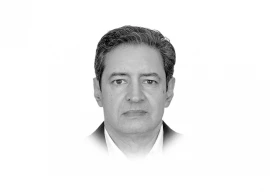





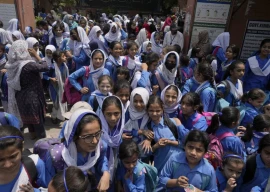
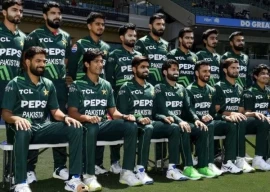


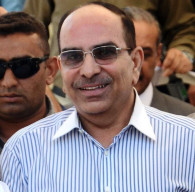



Nicely written and I agree with your view. I would take it a bit furter and say that also in the screening process of candidates the ECP left much to be desired.